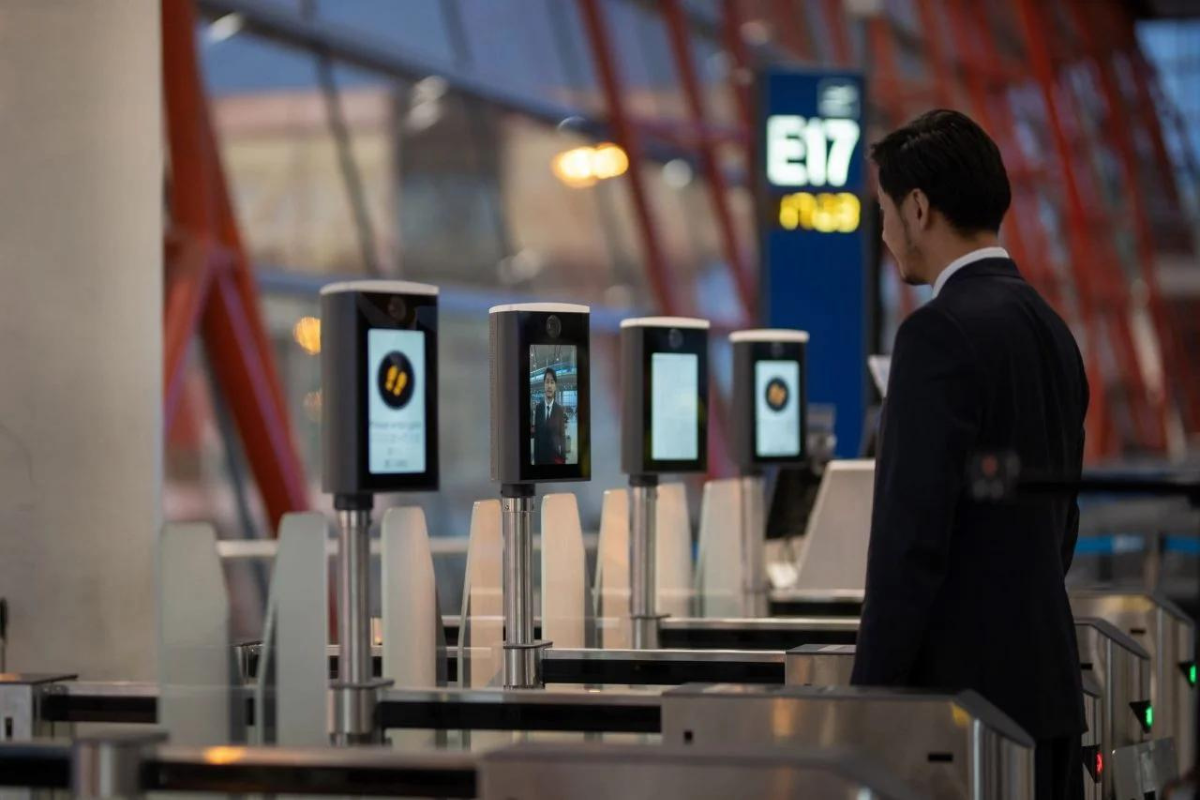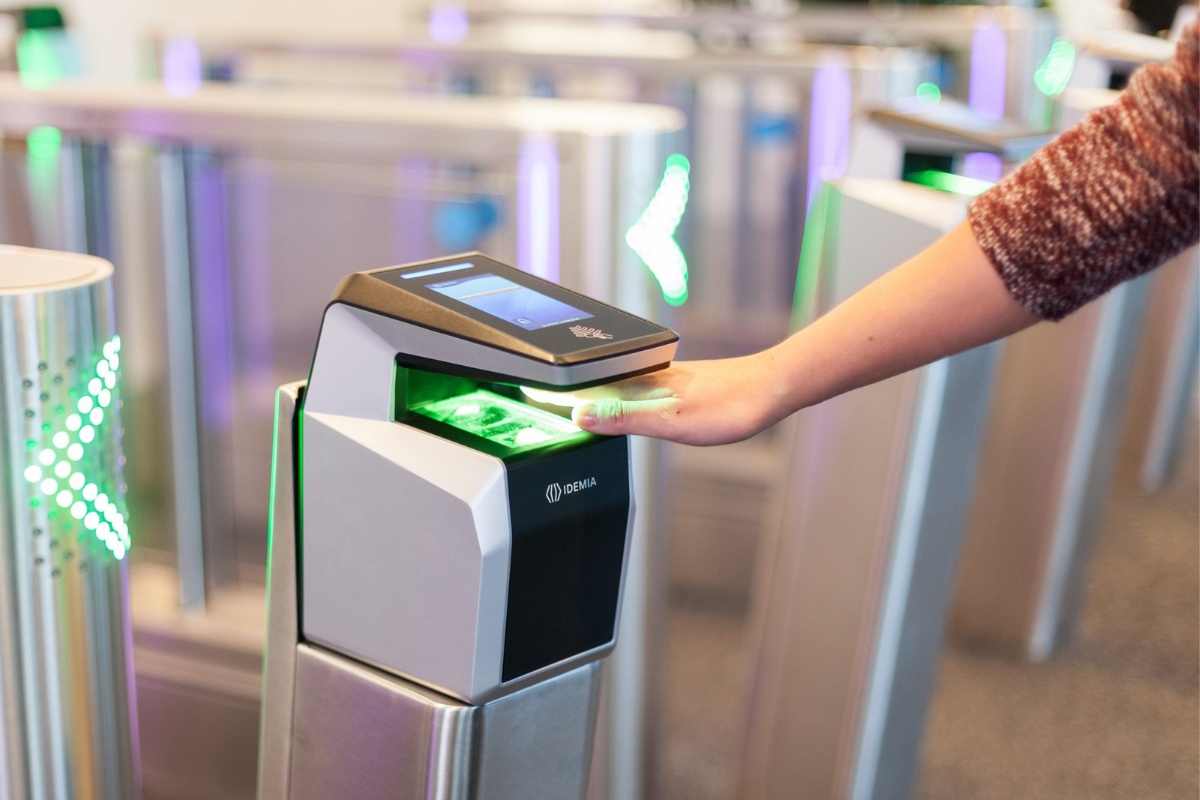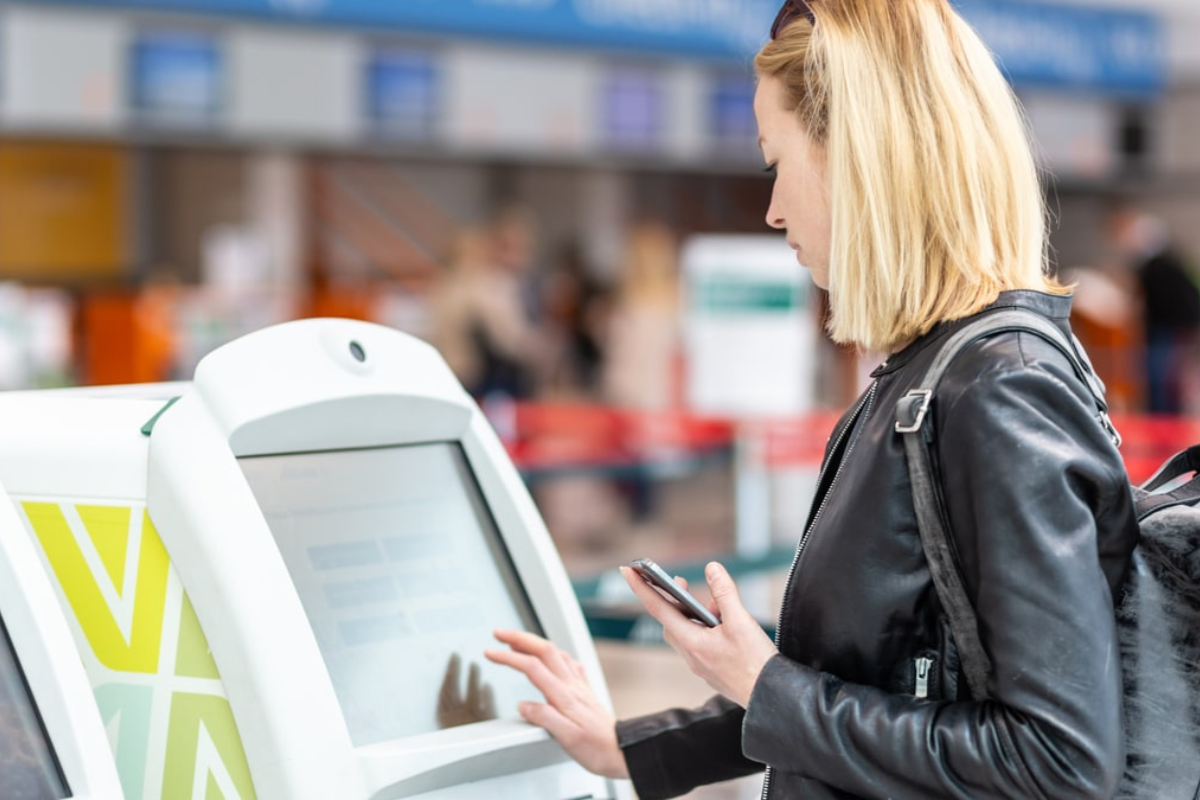The tourism industry, constantly evolving to cater to growing demands and aspirations, stands on the precipice of a revolution. Biometric technology, with its unique ability to identify and authenticate individuals based on their inherent biological traits, promises to transform the travel experience, making it smoother, more secure, and personalized.

Photo: Airport Technology
Imagine arriving at the airport and whizzing through security checkpoints without the hassle of passports or boarding passes. Facial recognition technology, already being piloted in several airports, can identify and verify travelers in seconds, reducing queues and simplifying the process. This technology can also be extended to boarding gates, eliminating the need for physical tickets and further streamlining the boarding process.
Biometrics can also personalize the travel experience. Imagine hotel rooms automatically adjusting the temperature based on your facial expressions or theme park rides customizing their intensity based on your heart rate. Biometric sensors can analyze individual preferences and tailor experiences in real time, making them more immersive and enjoyable.
Biometric technology can significantly enhance security in the tourism industry. Facial recognition can be used to identify and track individuals on watch lists, preventing unauthorized access to sensitive areas. Fingerprint scanners can secure hotel rooms and luggage lockers, deterring theft and providing peace of mind for travelers.
Furthermore, biometrics can be used to improve border security. Iris scans, which are highly resistant to forgery, can be used to verify travel documents and identify potential imposters. This can prevent illegal immigration, human trafficking, and other security threats, ensuring a safer travel experience for everyone.
Biometric data can be used to personalize marketing campaigns and recommendations for travelers. By analyzing facial expressions, preferences, and travel history, tourism companies can create targeted offers and experiences that are more likely to resonate with individual travelers. This can lead to increased customer satisfaction, loyalty, and revenue.

Photo: Biometric Update
Challenges, ethical considerations, and the future of biometric tourism
Despite its potential, the use of biometric technology in tourism raises ethical concerns and challenges that need to be addressed. Data privacy and security are paramount, and robust measures must be implemented to protect sensitive information collected through biometric systems. Additionally, potential biases in facial recognition algorithms must be mitigated to ensure fair and non-discriminatory treatment of all travelers.
Furthermore, transparency and informed consent are crucial. Travelers must be clearly informed about how their biometric data is being collected, used, and stored, and they should have the option to opt out if they wish. Building trust and ensuring the responsible use of technology is essential for gaining public acceptance and maximizing the benefits of biometrics in tourism.The future of tourism is undoubtedly intertwined with the advancement of biometric technology. As the technology matures and ethical concerns are addressed, we can expect to see even more innovative applications. Imagine personalized travel packages created based on your biometric data, or immersive experiences that adapt to your emotional state in real-time. The possibilities are endless.
However, it’s vital to remember that technology is a tool, and its impact depends on how we choose to use it. By implementing biometrics responsibly with a focus on ethical considerations and data privacy, we can unlock a future where tourism is smoother, safer, and more personalized for everyone.

Photo: Raconteur
Hospitality transformed: A glimpse into the biometric future
Imagine arriving at a hotel, not with a keycard clutched in hand, but with a simple smile. Facial recognition technology scans your features, verifying your identity and granting instant access to your room. No more queues, no more fumbling for misplaced cards – your arrival is smooth and effortless. This is just a glimpse into the future of hospitality, where biometrics are poised to revolutionize the guest experience.
But the transformation doesn’t stop there. Stepping into your room, the temperature adjusts to your pre-set preference, detected by subtle physiological cues. The lights dim to a soothing level, and your favorite playlist starts playing, all orchestrated by biometric sensors seamlessly reading your unique data. This personalized environment, tailored to your individual comfort and preferences, creates a sense of haven after a long journey.
Security is paramount in any hospitality setting. Biometric access control systems add a layer of protection by securing your room and common areas. Gone are the days of easily copied keycards; only authorized individuals with matching fingerprints or facial scans can gain access, deterring unauthorized entry and providing peace of mind. With this heightened security, you can truly relax and enjoy your stay, knowing your belongings and privacy are safeguarded.

